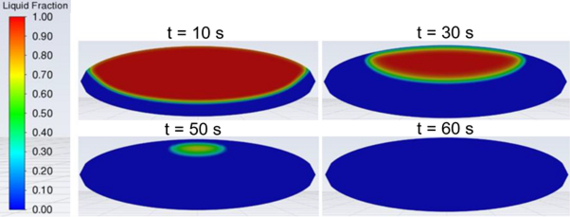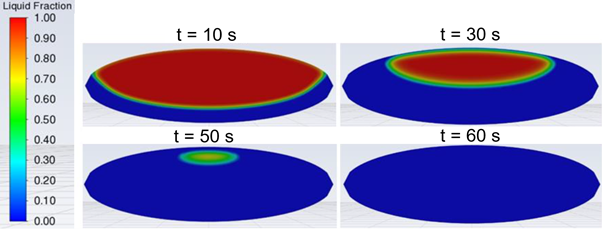The provision of erythrocyte concentrate (RBC), i.e. red blood cells from blood freed from plasma, known in society as blood reserves, at all times is an essential component for the treatment of many diseases and injuries. When stored conventionally in a refrigerator at a temperature of 4°C ± 2K, the shelf life of the concentrate is 35 to a maximum of 42 days, which regularly results in alarmingly low stock levels for many blood groups. Cryopreservation is a promising alternative to conventional storage. The aim of cryopreservation is to preserve living cells and tissue almost indefinitely by controlled freezing and storage at temperatures below -135°C down to -196°C.
A continuous cryopreservation process is being tested at the Institute of Thermodynamics (IfT) and the Institute of Multiphase Processes (IMP). Similar to the floating process used in glass production, the EC is to be applied as a thin film to a suitable carrier fluid and cooled. To significantly increase the shelf life and quality of the blood preserves, the EC must be cooled down at extreme cooling rates of 4000-5000 K/min. The design of the apparatus should be accompanied by a robust model to simulate the process and, conversely, the apparatus should contribute to the validation of the model.



The project is funded by the German Research Foundation (DFG) and is being carried out jointly with the Institute of Multiphase Processes at Leibniz Universität Hannover.





